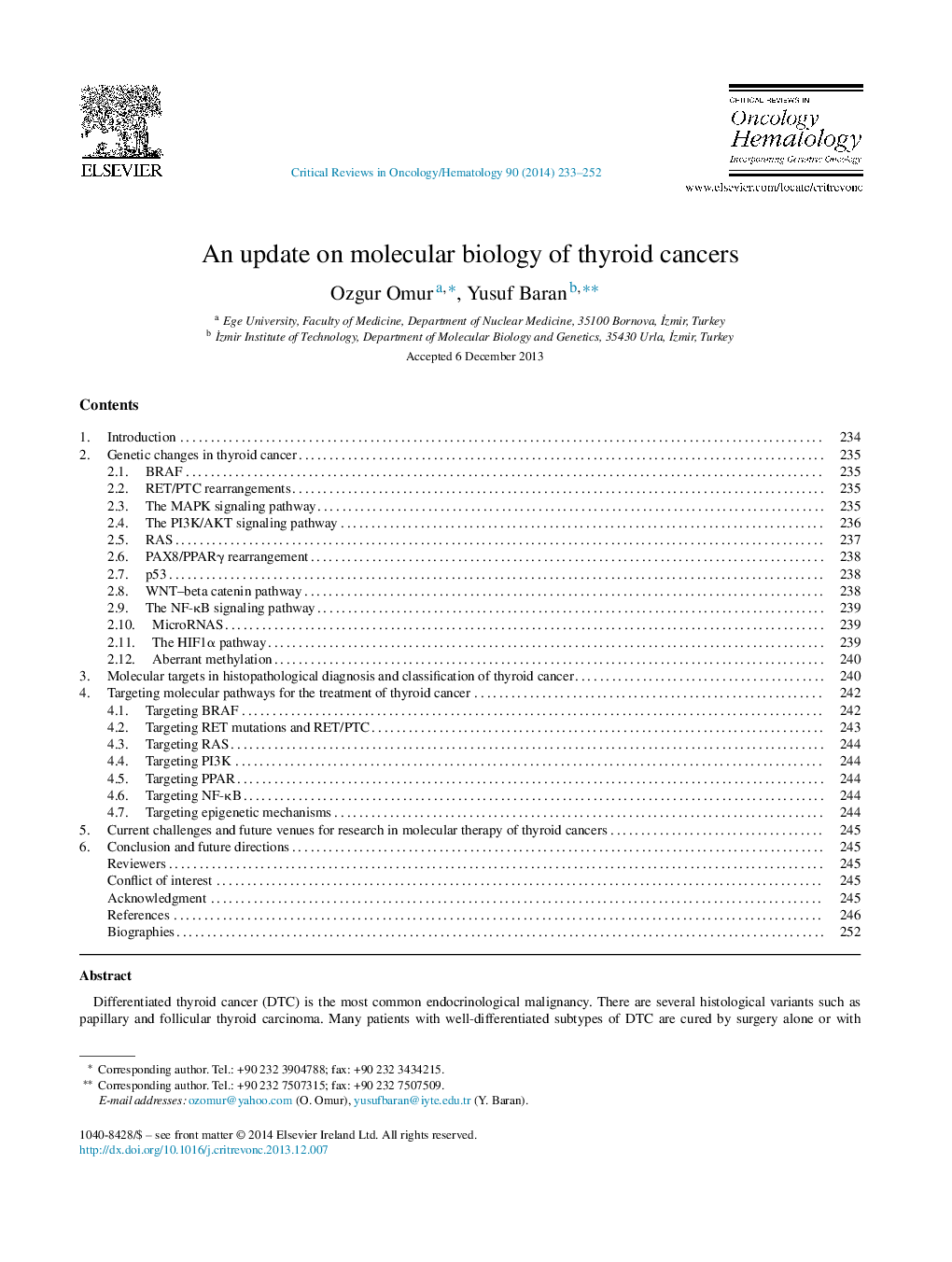| Article ID | Journal | Published Year | Pages | File Type |
|---|---|---|---|---|
| 3328756 | Critical Reviews in Oncology/Hematology | 2014 | 20 Pages |
Differentiated thyroid cancer (DTC) is the most common endocrinological malignancy. There are several histological variants such as papillary and follicular thyroid carcinoma. Many patients with well-differentiated subtypes of DTC are cured by surgery alone or with radioiodine, while poorly differentiated types usually have a worse prognosis. The aggressiveness of thyroid tumors is closely linked to specific gene alterations.Several diagnostic and prognostic molecular markers such as BRAF and RAS point mutations; RET/PTC and PAX8/PPARγ gene rearrangements; MAPK, PI3K, p53, Wnt–beta catenin, HIF1α and NF-kappaB signaling pathways; microRNA profiles and aberrant methylation have been demonstrated in more than 70% of DTC. Diagnostic use of these molecular markers may be optimized for identifying higher risks of mortality, tumor recurrence and metastatic potential. Understanding the molecular biology of thyroid cancers can be an important avenue for diagnosis and treatment of radioiodine-refractory or inoperable DTC patients with novel molecular targeted therapeutic agents.
